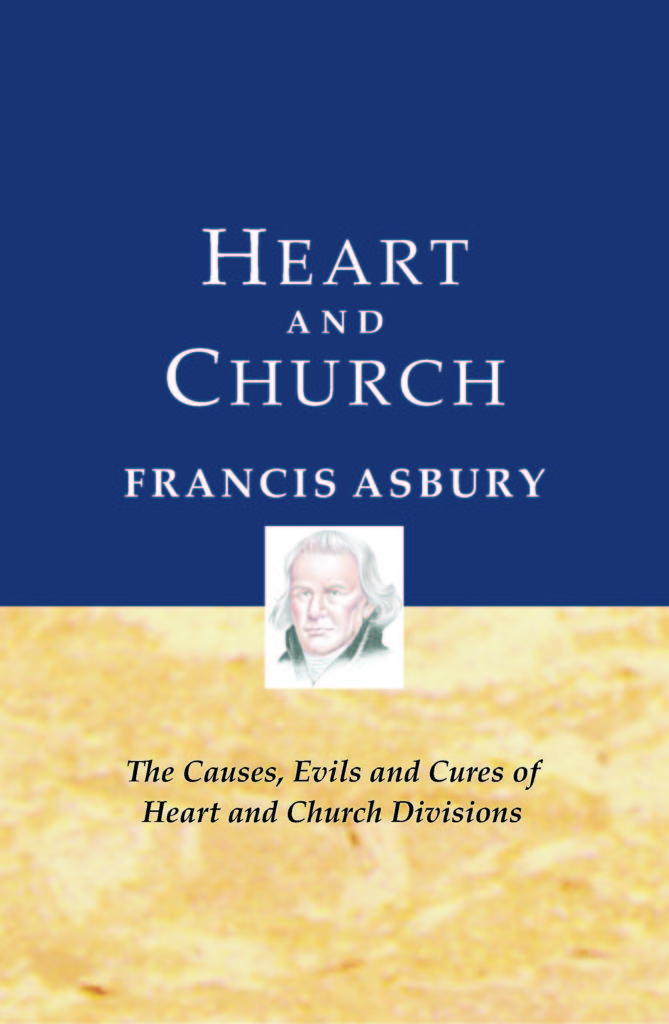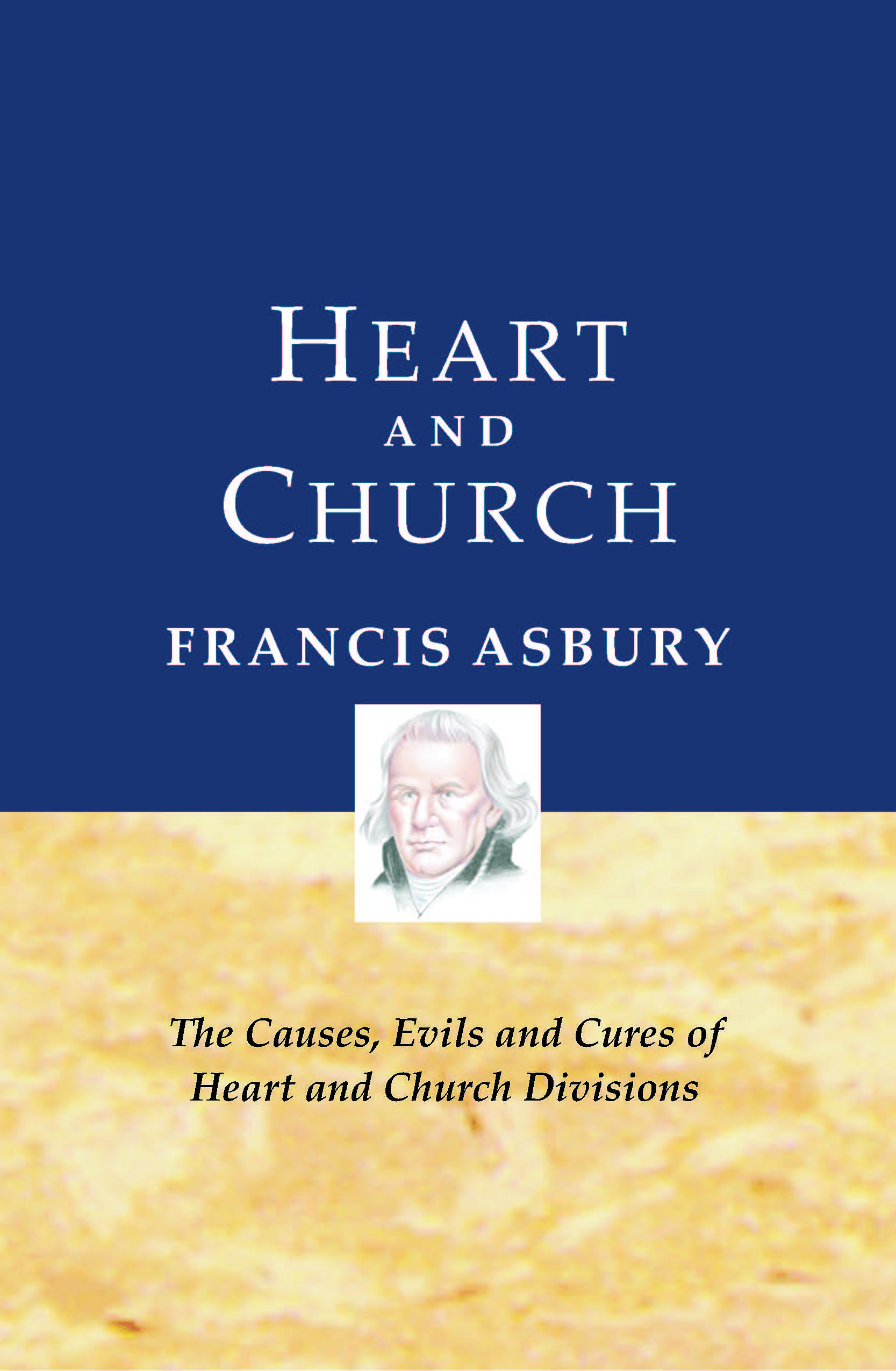It is a pleasure to introduce this new edition of Bishop Francis Asbury’s only book, a book that is, in fact, a compilation of two other books that the father of American Methodism found particularly appropriate and helpful to his situation. That situation was church division, a subject that is much on the minds of American Methodists today. Although the situation today is different from the ones that Asbury faced, many of the issues discussed continue to be relevant.
The authors, and Asbury, by extension, are concerned to identify the personal issues that have often led to division. One cannot read very much in the letters of Paul without confronting these matters. How often the Apostle addresses pride, envy, jealousy, self-serving, and personal opinions as underlying causes of division, and in this book these matters are dealt with in detail. When divisions arise from these causes, they are always to be condemned. This book can be recommended precisely because it will help the reader to identify in himself or herself, most of all, these tendencies and to allow the Holy Spirit to deal with them.
All this being said, it must be pointed out that the fracturing that is presently occurring in the United Methodist denomination is not, by and large, the result of these causes. To be sure, there may be isolated instances where these are in play, and if they are, that ought to be faced and dealt with, but they are not the central issue. Some might say differences of opinion over human sexuality are the causes of the divisions, but that issue is only the presenting cause. The real cause is much deeper. It is one that has been entrenching itself in the denomination for a century in deeper and deeper ways. The impact of this matter was often muted throughout the intervening years and its significance, while pointed out by some lone voices,[1] could be overlooked by the many. Now its effect has become unmistakably clear.
What is this issue? It is the issue of biblical authority. For a century and more Methodist seminaries have been chipping away at this bedrock foundation of the Christian faith. If the Bible is not the divinely authorized revelation of God as to the meaning of life, the nature of the human problem, and the provision of God for the solution of the problem, the Christian religion is a tissue of lies, a whistling in the dark as we pass the graveyard. The Bible’s divine authority is irreplaceably important. If it is only the product of naïve persons attempting to find a way around the grim realities of life, then it is not to be piously paraded but to be discarded.
Yet, the work of biblical scholarship has been precisely to erode any trace of a divine hand in the book and its claims. So, we began by denying Mosaic authorship of the Pentateuch, and then the historicity of the Exodus, and then the reality of the Conquest, and then the kingdoms of David and Solomon. This was accompanied by the denial of the Virgin Birth and the consequent Deity of Christ and the Bodily Resurrection of Christ. But we were lulled to sleep by the fact that while more and more pastors, having been misled by their seminary professors, were espousing these ideas, the denomination did not consider changing its official stance upon biblical authority and the doctrinal positions emerging from that authority (except, perhaps, in a few smoke-filled rooms).
It was only when there came about a movement in the mid-1970s to change the denomination’s official statements on sexuality that it became increasingly clear what had happened to us. The Bible’s endorsement of life-long marriage between a man and a woman and its condemnation of any form of sexual expression outside of such a marriage relationship is unmistakable.
It is appropriate here to say a word about this matter in relation to biblical authority. It is sometimes said that, in fact, positions relating to sexuality are really matters of opinion and not of biblical authority since there are biblical pronouncements and positions to which Christians no longer adhere, such as commands to offer sacrifices and the acceptance of slavery as a fact of life. This is a worthy argument, and one that ought not to be dismissed. At the same time, it is rather easily addressed. Not all the mandates of the Old Testament are to be considered absolute. Some, such as sacrifice, are specifically removed by the New Testament; others, such as circumcision and sabbath-keeping, are made optional. But others, such as adultery and homosexual practice continue to be prohibited. There is the principle: when the New Testament confirms what the Old Testament requires, it is incumbent upon the Christian to obey.
The matter of slavery is different. First, and of vital importance, nowhere does the Bible, Old or New Testament, command a Christian to keep slaves. It was only permitted in a world where slavery was the unquestioned norm. Why was it not condemned? It was not condemned for the same reason that civil obedience was commanded; Christ and his followers were not interested in fomenting a social revolution. What they taught about humanity in relation to God would necessarily revolutionize society, but from the direction of individual to society, not the reverse. Thus, we may say today, with thanks, that biblical principles lead inevitably to the conclusion that no person should enslave another.
But what attitudes shall we display as we withdraw from a denomination that has become apostate? Asbury’s book will tell us that we should do so with love for those from whom we depart. We should do so with sorrow and regret. There should not be a shred of triumphalism or self-righteous pride. Let us offer sincere prayer for the conversion of those who have abandoned biblical authority. Let us avoid any sort of finger-pointing or any judgmental attitudes. Let us pay attention to ourselves and should there be recriminations levelled against us, let us receive them with quietness and humility and no breath of bitter self-defense. Let us behave in a manner that will confirm the truth of the gospel (1 Cor 9:23).

[1] In the 1920s Henry Clay Morrison, then president of Asbury College (now University) brought into existence a theological school that would espouse orthodox Methodist doctrine while maintaining a separate existence from the denomination whose official seminaries were already being seduced away from the truth.

